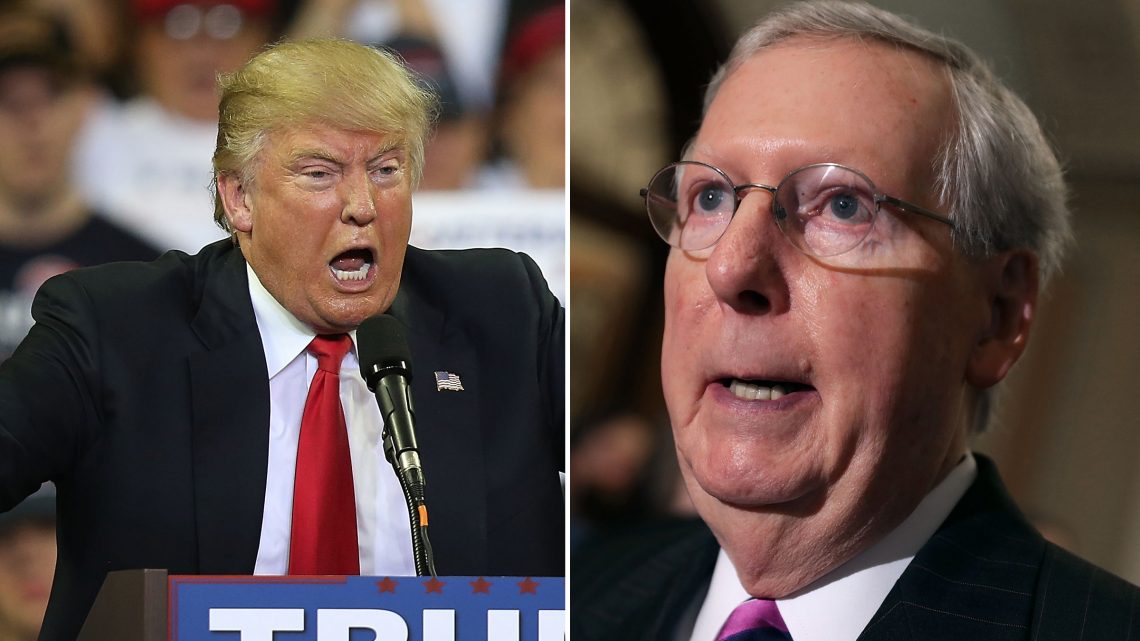
For Politics to Get Less Tribal, the Republicans Have to Lose
October 9, 2018When Senate Republicans (plus West Virginia Democrat Joe Machin) confirmed Brett Kavanaugh to the Supreme Court over the weekend, it ended a fiery public battle that saw the Republicans accusing the Democrats of political sabotage when the latter took the sexual assault allegations against the GOP nominee seriously. It was a remarkable moment of hyperpartisanship, and it left many marveling at how badly broken DC was.
Norman Ornstein, a scholar at the conservative American Enterprise Institute, has been watching this breaking of the capital for a long time—he was around when Republicans and Democrats routinely worked together to pass legislation, and in 2012 he co-wrote the prescient book, It's Even Worse Than It Looks: How the American Constitutional System Collided with the New Politics of Extremism. His thesis is that as DC has gotten more partisan, the Republicans bear far more responsibility than the Democrats. I called him up to ask what could be done to fix this problem hanging over the country.
VICE: How did America get so tribal?
Norman Ornstein: Tribalism is where you go from viewing the other side as a worthy adversary to being the enemy who is trying to destroy our way of life. The move towards tribalism goes back to at least the late 1970s with a very deliberate strategy of Newt Gingrich's—it took him 16 years from when he entered Congress—to achieve a Republican majority in the House. It was then amplified with the emergence of a political talk radio and a tribal media, and the business models began to transform.
What started with elite figures in Washington moved out to the states and then to the public as a whole. We saw people sort themselves into parties based more on their worldview and ideology. But it went way beyond ideology. Tribalism was accentuated throughout the [Bill] Clinton years—his impeachment—and into the Bush years—the contested 2000 election, the 5–4 decision in the Supreme Court, the recount where a lot of people, Brett Kavanaugh among them, went down to Florida to protest, the [Iraq] war, the aftermath of 9/11, and the whole notion of torture. This [polarization] was accentuated dramatically with an African-American president. All of that has left us in a stage where we can talk about hyperpartisanship, but the more telling term is tribalism.
How do we get out of this? What's the conclusion to this tribalist political path we're on?
It's hard to get out of it. It's going to be a while. You would hope that a couple of things could happen—one is that Americans, large numbers of whom don't spend their days and nights focused on politics, begin to see that this is a dangerous direction in which we're going, and begin to rethink [the path we're on]. That can be accompanied by a lot of people in the larger civil society trying to find ways to bridge gaps and to get people talking to one another again. But frankly, as you see with Gingrich and [Senate Majority Leader Mitch] McConnell, this tribalism has been more asymmetric in nature.
I think it's going to take three serious election losses in a row for Republicans to get a rethink. And that rethink would span a couple of areas. One is moving from believing that you can maintain power with a minority of Americans by whipping up tribal frenzies. And then [instead of] using tactics like voter suppression, you appeal to a larger group of people, which means changing both rhetoric and policies. It means giving more traction to figures who want to focus more on solving problems and on uniting the country. [It also means not] trying to give more power to courts that will have members in positions for decades after voters have decided they don't want you.
What do you think of the idea that Democrats should also challenge norms and try things like packing the Supreme Court?
The challenge that we have, and it is a very difficult one to deal with, is if you see a party blowing up norms of governance and gaining from that process, how do you respond? If the answer is blowing up even more norms to right some wrongs, it becomes a dangerous process.
What about impeaching Kavanaugh?
If more evidence emerges that suggests that you have a justice who lied repeatedly during his confirmation hearings or has other instances of really bad behavior that are documented, you almost have to move in that direction. But of course it's a dangerous thing to do. And if the, if the perception is that it's being done because of his ideology, you really don't want to go down that path.
Even if [the Democrats actually] have grounds for impeachment, let's face it, it just is going to divide the tribal elements further.
What can be done by the increasingly transparent partisanship of the Supreme Court?
When I talk to some justices, they defend the Supreme Court by saying, “Look, the vast majority of our cases are decided unanimously or near unanimously.” The larger point right now is that the critical cases—the ones involving voting rights, campaign finance, and the role of corporations versus workers and so on—are almost all done 5–4. If the chief justice decided on his own, which he could do, to move dramatically away from that by casting his own vote in a fashion that would move narrow cases in a different way—emphasizing that the court is, in fact, not behaving in a tribal way—that could begin to inch things back in a different direction. I'm skeptical that that will happen.
What’s the alternative to fighting tribalism with more tribalism?
What changes parties' behavior is when [that behavior] doesn't work. It's going to take a bunch of election losses to begin to move in a different direction, to move towards a different kind of balance.
This interview has been edited and condensed for clarity,
Sign up for our newsletter to get the best of VICE delivered to your inbox daily.


